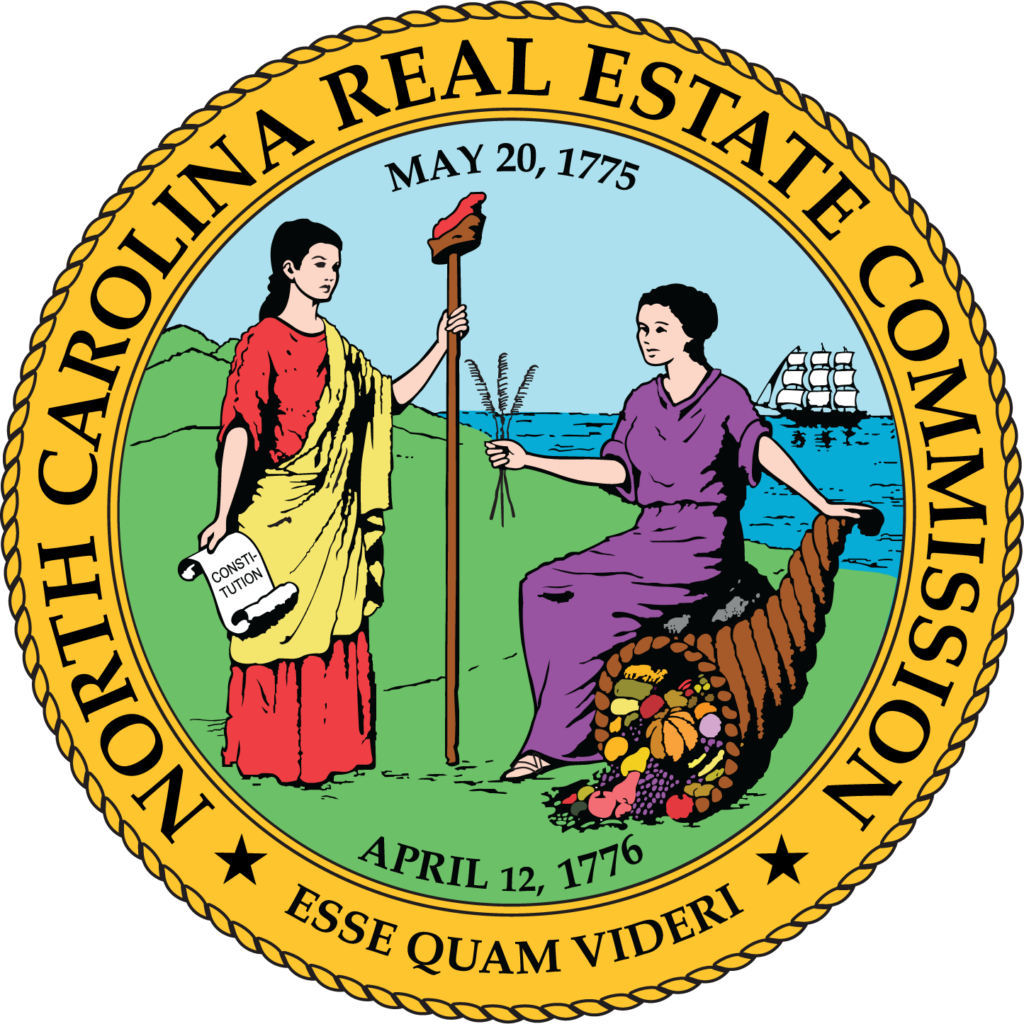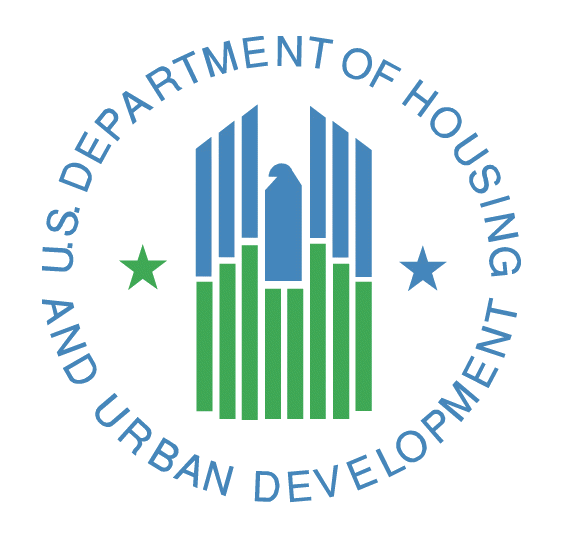Bulletin Search
Fair Housing
Real estate professionals are often the first and primary point of contact for buyers, sellers, and renters in the real estate marketplace. Access to reliable fair housing resources is essential for brokers in order to help them navigate complex regulations with confidence and consistency. Quality resources, including federal guidance, state-level updates, or industry training tools, help brokers avoid regulatory violations, respond appropriately to client questions, and maintain ethical practices. Ultimately, staying connected to these resources strengthens a broker’s professionalism, protects their business, and reinforces trust within the communities they serve. Brokers would benefit from having the resources below in their toolkit.

North Carolina Real Estate Commission
- Provides fair housing guidance for brokers and consumers
- Offers continuing education courses with fair housing components
- Offers education and outreach for brokers and consumers

U.S. Department of Housing and Urban Development (HUD)
- Provides federal fair housing regulations, complaint procedures, and compliance guidelines
- Offers training materials and policy updates
- A foundational source for understanding national standards

- Offers fair housing training and simulations for members
- Offers a fair housing video and articles for non-members

Fair Housing Assistance Program (FHAP) Offices
HUD-certified state and local organizations that investigate complaints, offer education, and outreach programs

Fair Housing Organizations and Nonprofits
These organizations offer education, outreach, advocacy, and research
Reminder to Licensees Regarding Contact Information
Every broker in their Licensee Login must provide the Commission with a private email. If you are a broker, your private email is the way you will receive all notices and communications from the Commission. The Commission sends out reminder notices, renewal notices and other communications using the private email provided by the broker.
Brokers also have the option to provide a public email address. The public email address is what the Commission makes available to the public, including people outside of the Commission who have requested broker contact information.
Brokers provide the following information in their portal and are responsible for making certain this information is current and correct:
- Private email address
- Optional public email address
- Residence mailing address
- Residence physical address
- Private phone number
Brokers do not need to fill out a form, submit an email or call the Commission to change any of the above items. The Commission will not alter these fields from what the broker has entered. If the information is outdated or incorrect, the broker simply needs to log in to their portal and change it.
Brokers should not use the Firm/Office Address Change Request form (REC 2.21) to change their individual address, even if changing affiliations. This form is designed for use only by a BIC when a firm or office location address changes.
Please take a moment to log in to your broker portal today and check the accuracy of your contact information. Doing so will insure that you don’t miss important notifications from the Commission.
Acquiring title “subject to” a seller’s mortgage can lead to FRAUD
When you read or hear the term, “subject to” in connection with real estate, it typically means to acquire title to a property subject to the current owner’s existing mortgage. Typical scenario: A buyer contracts to buy a seller’s property subject to the seller’s existing mortgage and the buyer promises to make payments on the seller’s existing mortgage until it is paid in full. [Note: This is NOT a formal loan assumption which would require the lender’s approval of the buyer and the transfer of title.] The seller often signs a quitclaim deed to transfer the title to the buyer, but doesn’t inform the seller’s lender. Why? To avoid triggering the due-on-sale clause which would require the seller to pay off the mortgage. The concealment of the sales transaction from the lender is where the fraud typically toccurs.
After transferring the title to the buyer, the seller no longer owns the property, but the seller’s mortgage still exists. In the event of a default of the existing mortgage, the lender would potentially have no collateral to sell to pay off the debt. As the new owner of the property, the buyer might try to (1) borrow money using the house as collateral, (2) sell the property to someone willing to pay more for the property, or (3) lease the property. While the buyer might pay off the seller’s mortgage after reselling the property, there is no guarantee that this will occur. Often,, the buyer only makes mortgage payments when rent is collected and rarely makes repairs, leading to a delinquent mortgage in the seller’s name and a property that falls into disrepair.
Transferring a property subject to the seller’s existing mortgage without disclosure to the lender is generally a form of LOAN FRAUD and no broker should participate in a “subject to” transaction as a broker, a buyer or a seller without legal advice from a qualified real property attorney. If a broker cannot prove with documentation that they informed the seller and the mortgage company about the “subject to” transaction and the transfer of title to the property, then there are possible violations of N.C.G.S. § 93A-6(a)(1), (8) and (10) which authorize the Commission to pursue disciplinary action against a licensee involved in this type of transaction.
PBs, Don’t Forget your Postlicensing Deadline!
Are you a provisional broker? Have you completed your Postlicensing courses? If not, don’t let the ads for Continuing Education (CE) courses distract you from also completing your three required Postlicensing (PL) courses by your deadline. To remain eligible for active license status, PL must be completed in a timely manner.
The 18-month PL deadline started ticking as soon as your license was issued. It does not matter if or when you activated your license, you still must complete your PL courses within 18 months of initial licensure. Further, Commission rules do not allow for any extension of the 18-month period. Noncompliance will result in an inactive license status until the education deficiency is remedied and any other activation requirements are met.
CE and PL are not the same and are not interchangeable! Both are important. The primary purpose of PL education is to provide new brokers with practical education to help them transition from provisional status to becoming a “full” broker. In most cases, it only needs to be completed one time. Meanwhile, CE is an annual broker education requirement to keep brokers up to date on current issues and practices and other topics of importance to brokers; It is also a requirement for active license eligibility.
License Renewal Fee
With February coming to an end, the Commission is already preparing for the annual license renewal period beginning May 15 and ending June 30, 2026.
This year, the annual renewal fee will be $50, an increase of $5. The Commission last raised the renewal fee in 2014.
During the renewal process, don’t forget that every broker must provide the Commission an email address for Commission communications, with the option to designate their email address as private in their Licensee Login.
Additionally, brokers-in-charge (BIC) are required to:
- disclose the federally insured depository institution(s) lawfully doing business in the State where the trust accounts for the BIC or the entity for which the BIC is designated is held, if applicable, and
- report any criminal convictions or occupational license disciplinary actions that occurred within the previous year.
NOTE: If you would like more information on how to designate your email address as private, please read the article, “How to Designate My Email Address as Private.”
Continuing Education Reminder
Link: https://youtu.be/GEFXaygyh9w
Script: Have you completed your continuing education (CE) for 2025-2026 yet? Did you know that approximately 30% of active brokers who are required to take CE have already met their 8-hour educational requirement for this license year?
Don’t forget that CE is due by June 10, 2026, and your license must be renewed by June 30, 2026, to remain on active status for the 2026-2027 license year. Remember, completing your CE early keeps you informed on current License Law and Commission rules.
Keep in mind that brokers who wait until the final weeks to complete CE may run the risk of limited class availability and scheduling conflicts.
You can find available CE courses on the Commission’s website.
If you have not registered yet, do so TODAY!
2026 Spring Educators Conference

Are you a North Carolina real estate instructor? Have you registered for the Commission’s 2026 Spring Educator’s Conference?
You do not want to miss your chance to attend this year’s conference. It will provide you with a direct flight to timely License Law and Commission rule updates, exam security, and commonly alleged education rule violations that are investigated by Regulatory Affairs.
The registration fee is $100 and includes breakfast, break service, and lunch. Also, did you know that approved instructors who attend the full conference receive 6 hours of instructor development credit?
Space is limited to 250 educators, and fees are non-refundable. You should register now on the Commission’s website before seats are SOLD OUT!
Tech Corner
Cloud storage platforms make it easy to manage transaction files from anywhere, but convenience does not replace compliance.
According to Rule 58A .0108, brokers shall retain records of:
- all sales, rental, and other transactions conducted in their brokerage capacity,
- whether the transactions are pending, completed, or terminated.
This Rule mandates that all brokers are responsible for retaining transactional files and documents related to their brokerage activity. The record retention requirements apply:
- from the inception of the agency relationship;
- while the transaction is pending;
- when the transaction is consummated; or
- after the agency agreement is terminated.
The Commission acknowledges that brokers may want to electronically store their records and cloud storage platforms can be an effective compliance tool for brokerages. However, brokers should ensure transaction documents/files are retained and BICs should have clear written policies addressing access to cloud storage platforms, file security, and the accessibility of records if a broker’s affiliation with the BIC is terminated.
Takin time to evaluate your digital record retention practices now can help ensure your record retention is in compliance with License Law and Commission Rule 58A .0108.
NOTE: Rule 58A. 0108(c) indicates that all records must be made available for inspection and reproduction by the Commission or its authorized representative without prior notice.
Commission Presentations
February 2026 Presentations
*These presentations are subject to change due to the availability of Commission members and/or staff.*
Bruce Rinne, Information Officer, spoke at Real Broker LLC on February 4th.
Janet Thoren, Director of Regulatory Affairs, spoke at the North Carolina Department of Justice event, Consumer Confidence 101: Your Guide to Home Buying, on February 5th.
Jean Hobbs, Auditor/Investigator, spoke at Coldwell Banker HPW Midtown Office on February 6th.
Beau Minnick, Consumer Protection Officer, spoke at True North Realty on February 11th.
Bill Aceto, Commission Chair, and Mel Black, Commission member, spoke at the High Country Association of REALTORS® on February 12th. Janet Thoren, Legal Counsel, attended the event.
Miriam Baer, Executive Director, spoke at Raleigh Regional Association of REALTORS® on February 19th.
Bill Aceto, Commission Chair, Jean Hobbs, Auditor/Investigator, and Brian Heath, Consumer Protection Officer, spoke at North Carolina Property Management Conference on February 24th and 25th. Kristen Fetter, Assistant Director of Regulatory Affairs, attended the event.
Bruce Rinne, Information Officer, spoke at Centruy 21 The Realty Group on February 25, 2026.
Diana Jasany, Communications Officer, spoke at Coldwell Banker Howard Perry and Walston on February 26th.
Tiffany Ross, Consumer Protection Officer, spoke at Wilson Community College on February 26th.
Tiffany Ross, Consumer Protection Officer, spoke at Hunt High School on February 27th.
March 2026 Presentations
*These presentations are subject to change due to the availability of Commission members and/or staff.*
Bruce Rinne, Information Officer, will speak at Lantern Realty and Development on March 4, 2026.
Len Elder Director of Education and Licensing, and Kizzy Crawford Heath, Assistant Director of Education and Licensing, will speak at Durham Regional Association of REALTORS® on March 12th.



